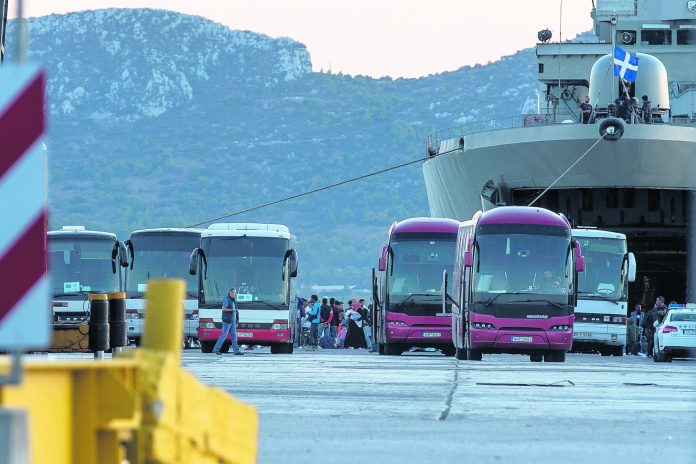
Auditors on Wednesday urged the European Union to improve its approach to easing migrant pressure on Greece and Italy as people languish in camps on the Greek Islands and to draw lessons from its shortcomings before a new crisis hits.
Well over 1 million people arrived in Europe in 2015, most of them fleeing conflict in Syria. Greece and Italy were overwhelmed, and the arrivals sparked a political crisis as nations bickered over who should take charge and whether to help.
As pressure from member countries built for a quick response, the EU came up with a series of stop-gap emergency measures and funds. Greece has received around 2.2 billion euros ($2.4 billion) since then; Italy around 1 billion ($1.1 billion).
Unveiling a report Wednesday on the EU’s migrant response, European Court of Auditors member Leo Brincat said now is the time “for stock-taking, putting the house in order, and even taking the necessary remedial action.”
“It’s better to take action at a time when there is no peaking of the migration crisis,” Brincat said, because poor timing “is bound to lead to knee-jerk reactions, and knee-jerk reactions don’t always lead to the most judicious actions.”
Among the EU measures was a quota scheme initially meant to share 160,000 refugees in Greece and Italy with their European partners. But member countries only agreed to relocate 98,256 of them, and in the end, just 34,705 people found new homes.
The auditors said the schemes “underperformed” chiefly because the Italian and Greek authorities were unable to quickly identify candidates or encourage them to apply to be moved.
Fast-track asylum processing meant to identify eligible people in the Greek islands for return to Turkey was taking on average 215 days last year, instead of just a few days, the report said.
The auditors said some people in the Samos camp had been there waiting for two years, and that others who arrived in 2018 were given interview dates as late as 2023.
In Italy, asylum applications lodged in 2015 took on average over four years to reach the final appeal stage.q















